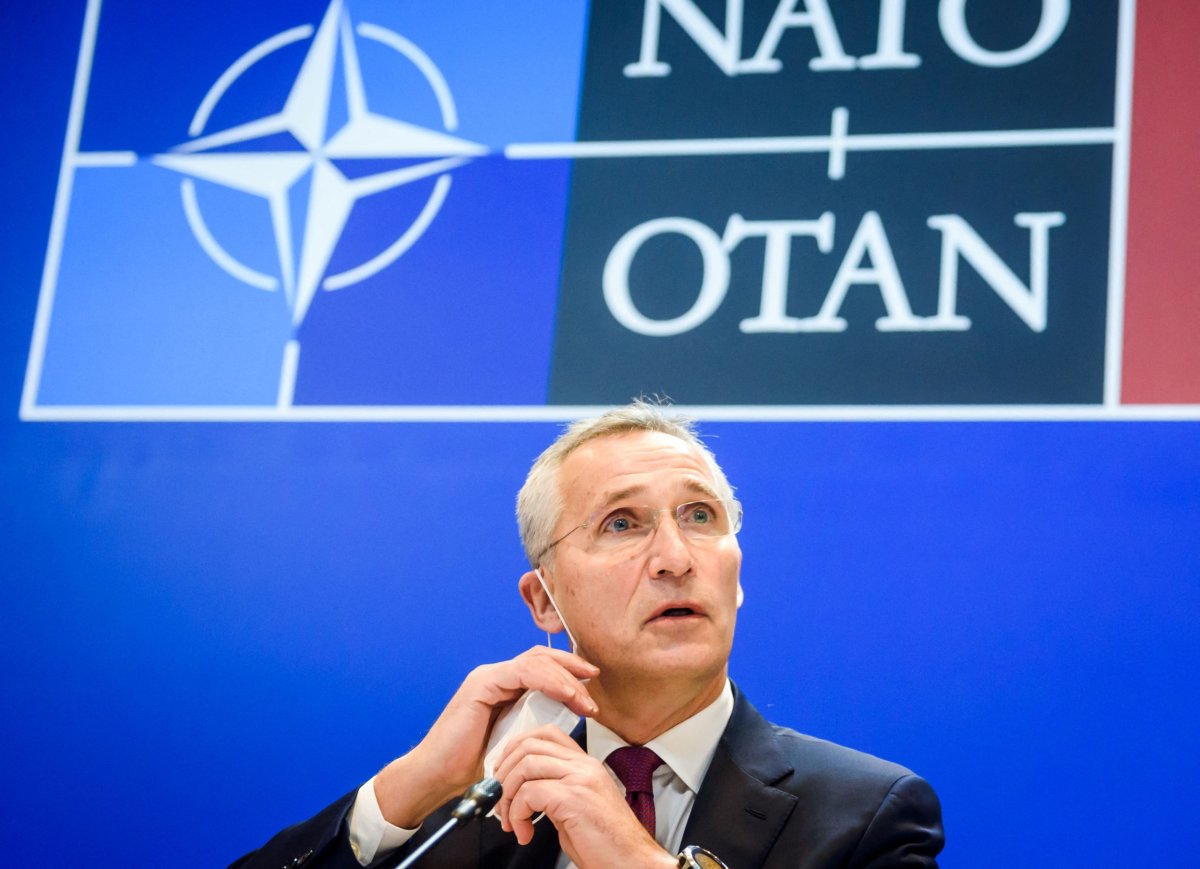A new Russian presidential decree suggests that Moscow could be gearing up for a standoff with new NATO member Finland and the Baltic States, according to independent investigative publication Agentstvo, and a U.S. think tank.
On Sunday, the Russian Ministry of Defense prepared a presidential decree that would deprive Russia's Northern Fleet of its status as an "interspecific strategic territorial association." It would transfer its four constituent regions (The Komi Republic, Arkhangelsk, and Murmansk oblasts, and the Nenets Autonomous Okrug) to the reformed Leningrad Military District.
Russian military analyst Yuri Fedorov told Agentstvo that the recreation of the Leningrad Military District suggests that Russia is gearing up for possible conflicts with the Baltic States and NATO.
The Leningrad Military District, stationed close to new NATO member Finland and the Baltic States, is a key component of the Russian Armed Forces that oversees parts of the nation's defense strategy in Russia's western region. Finland shares an 800-mile border with Russia.

Finland joined the NATO military alliance this year in response to Russian President Vladimir Putin's full-scale invasion of Ukraine. The Baltic States—Estonia, Latvia and Lithuania—have worked throughout the invasion to ramp up their defenses while sending aid to Ukraine.
Estonian counterintelligence said in a report this year that Russia considers the Baltic States to be the most vulnerable part of NATO. This would make them a focus of military pressure in the event of a conflict between the organization and Moscow.
The Leningrad Military District was merged in 2010 with the Moscow Military District, the Northern Fleet and the Baltic Fleet to form Western Military District. However, Moscow changed course in August when Defense Minister Sergei Shoigu announced that the military districts were under active formation.
"The district is intended to conduct war in a specific theater of operations. The Leningrad Military District has two theaters, the Baltic countries and Finland," said military analyst Fedorov. "In order for the district to have enough connections, it needs to be saturated with troops. Accordingly, troops stationed in these regions are transferred to [the district]."
Newsweek has contacted Russia's Defense Ministry and NATO for comment via email.
The Institute for the Study of War, a U.S.-based think tank, in its latest analysis of the conflict in Ukraine on Sunday, said the Russian Defense Ministry's decision to redivide the Western Military District indicates Russia sees the need to restructure its forces facing NATO and likely to posture on the Finnish border.
"Although it remains unclear how Russia will be able to mobilize, train, and organize these forces into new military district-level formations," the ISW said.
Fedorov said this restructuring is likely designed for the period after the war in Ukraine. He added that, when the conflict comes to an end, all participating nations will be faced with the question of preparing for a future war.
The expert said that the NATO military alliance, the U.S. and Europe may seek the deployment of large deterrent forces on the Russian borders, while Ukraine will seek to join NATO.
"Russia will face an even more difficult task, because the army is battered, modern weapons are being depleted, the war has revealed a lot of weak points in the army. They will strive to recreate armed forces capable of waging war in Europe and with Ukraine and NATO in the Western theater," Fedorov said.
Do you have a tip on a world news story that Newsweek should be covering? Do you have a question about the Russia-Ukraine war? Let us know via worldnews@newsweek.com.
Uncommon Knowledge
Newsweek is committed to challenging conventional wisdom and finding connections in the search for common ground.
Newsweek is committed to challenging conventional wisdom and finding connections in the search for common ground.
About the writer
Isabel van Brugen is a Newsweek Reporter based in Kuala Lumpur. Her focus is reporting on the Russia-Ukraine war. Isabel ... Read more





